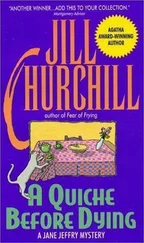Peter Dickinson - Some Deaths Before Dying
Здесь есть возможность читать онлайн «Peter Dickinson - Some Deaths Before Dying» весь текст электронной книги совершенно бесплатно (целиком полную версию без сокращений). В некоторых случаях можно слушать аудио, скачать через торрент в формате fb2 и присутствует краткое содержание. Год выпуска: 1999, ISBN: 1999, Издательство: Mysterious Press, Жанр: Старинная литература, на английском языке. Описание произведения, (предисловие) а так же отзывы посетителей доступны на портале библиотеки ЛибКат.
- Название:Some Deaths Before Dying
- Автор:
- Издательство:Mysterious Press
- Жанр:
- Год:1999
- ISBN:9780446561099
- Рейтинг книги:3 / 5. Голосов: 1
-
Избранное:Добавить в избранное
- Отзывы:
-
Ваша оценка:
- 60
- 1
- 2
- 3
- 4
- 5
Some Deaths Before Dying: краткое содержание, описание и аннотация
Предлагаем к чтению аннотацию, описание, краткое содержание или предисловие (зависит от того, что написал сам автор книги «Some Deaths Before Dying»). Если вы не нашли необходимую информацию о книге — напишите в комментариях, мы постараемся отыскать её.
Some Deaths Before Dying — читать онлайн бесплатно полную книгу (весь текст) целиком
Ниже представлен текст книги, разбитый по страницам. Система сохранения места последней прочитанной страницы, позволяет с удобством читать онлайн бесплатно книгу «Some Deaths Before Dying», без необходимости каждый раз заново искать на чём Вы остановились. Поставьте закладку, и сможете в любой момент перейти на страницу, на которой закончили чтение.
Интервал:
Закладка:
Jocelyn had undone the wrappings and looked at the box with puzzled interest. He had opened it and stared. She had never before seen him speechless with pleasure—could not have imagined that such a thing was possible. Even now, as she lay waiting for Flora’s return, her arid tear ducts attempted to water at the memory. All day, in any vacant few moments, he had the box out and was playing with one of the pistols, loading and unloading it, aiming, feeling the balance in his hand. He carried the box up to bed as if he intended to sleep with it under his pillows, like a child, but he merely put it on his bedside table.
Next week, going up to London for one of his committees, he left early. That evening at supper he said. “Do you mind telling me what you paid for those guns?”
“I don’t think I’d better. It was rather a lot.”
“Four figures?”
“Goodness me, no!”
“Then you’ve done well. You remember Gerald Mackie, used to be a beak at Eton? I got to know him because in my day he helped coach the Eleven. He left after the war and got himself a job at Christie’s—He’d always been interested in china and stuff, and they were glad to have him.”
“Didn’t you introduce me to him on Fourth of June? He had a Hitler moustache.”
“That’s right. He’s still got it. Had it before anyone took any notice of Adolf, he used to say, and he was going to hang on to it. Anyway, he couldn’t help me himself about the pistols, but he put me onto a chap in Ebury Street who deals in that sort of thing. I looked in this morning, before the committee. Wonderful shop. I could have spent a week there poking around. The fellow who runs it, Grisholm’s his name, is a rum little gnome with a club foot, but he obviously knows his stuff, and he got really excited about your pistols. They were made by a fellow called Ladurie—he was a Swiss, but he worked in Paris and Grisholm said he’d only once had another pair through his hands, nothing like as good as yours—it was just the guns, without the box or the trimmings—and they’d been knocked around a bit, and they were Ladurie’s ordinary stock-in-trade, whereas yours are obviously custom built for somebody pretty swell…Like to guess what Grisholm says he sold his for?”
“I don’t know. A hundred pounds?”
“Three fifty.”
“Oh my goodness.”
“The thing about Ladurie, Grisholm says, is that he was the first person to make a truly modern pistol. Most of the elements were around already, but he put them together, rifling, cap, powder cartridge, breech loading, firing pin—the only thing still to come was getting the slug and cap and powder all together into a single round. There were a couple of other fellows trying to do much the same thing, Frenchmen too, in the early eighteen hundreds, with the Napoleonic Wars in full swing, and they were all trying to interest the French army in taking their guns up. Ladurie’s were the best, but he didn’t get anywhere with them. His problem was that his craftsmanship was just too damn good. You can see that, can’t you—see it the moment you open the box. You’d need a workshop full of Laduries if you were ever going to turn out more than a handful of guns as good as what he made himself. So that’s why there aren’t that many around, and Grisholm’s never heard of anything this quality. Ladurie would have tested them in the workshop, but Grisholm says it looks as if they’ve never been fired since. Black powder’s desperately corrosive, of course, so you can usually tell unless they’ve been cleaned at once by someone who knows exactly what he’s doing.”
“Does that mean you can’t use them? I hope not. I thought we might be able to get some fresh ammunition made, somehow. Those won’t still fire, will they, after—what is it?—a hundred and fifty years?”
“Getting on that. I don’t know. When we were in Bangalore—’38, wasn’t it?—the Quartermaster came up with some ammo which had been around since before the first war, and we tried it out. There were just two duds in a hundred rounds. That was thirty years old, of course, but a craftsman like Ladurie…at a guess I’d say about one in five of the caps might fire, and the cartridges look sound and dry. But if the set’s a museum piece, which Grisholm says it is, they’re all part of it. No, I’ll ask Purdey’s. There’s bound to be someone there who can tell me how to get fresh ammo made, and how to clean the guns right, and all that, and then we’ll have some fun together…What’s the matter, Ray? Don’t you…?”
“No, I’d love to try, darling. It isn’t that. To tell you the truth I’m worried about Mr. O’Fierley. I feel as if I’ve swindled him out of several hundred pounds.”
“Oh, I don’t think so. You take the rough with the smooth in his line of business. He’ll have made what he regards as a decent profit already.”
“Yes, I know, but…I mean, they’re so perfectly right, I don’t want anything spoiling it. Did I tell you, Mr. O’Fierley said they were meant for us?”
“That’s poppycock. Look, next time you’re in Nottingham, why don’t you look in and tell him about it, and see what he says? It was a fair sale, so if he tries to be greedy you can just offer him a couple of hundred more and leave it at that, but if he’s decent about it then you can work it out between you.”
“All right.”
“And see if you can take a worthwhile picture of the coat of arms, and I’ll send it to be Joe Popplewell at the College of Heralds.”
“It’ll be French, won’t it?”
“Yes, of course, but he should be able to look it up.”
The answer came back before Rachel next had reason to visit Nottingham. The arms were those of Joachim Murat, Marshal of the first Empire, later King of Naples. Ladurie had presumably made them as a presentation gift, in the hope of persuading this influential soldier to take an interest in his weapons. Jocelyn telephoned Mr. Grisholm, who told him that such a provenance perhaps doubled the already considerable value of the pistols, but Jocelyn, typically, was far less impressed by this than their having belonged to a brave and successful soldier.
Mr. O’Fierley’s eyes had barely widened at the news.
“I’d been wondering,” he said. “When you’ve been in the trade as long as I have…well, well, well. But you’ve no need to worry, Mrs. Matson. A sale’s a sale, and I’ve been in the other ends of deals like this often enough in my time. If I had to go back now and make it up to all the people who’ve sold me stuff when I knew what it was worth and they didn’t, I’d be bankrupt ten times over. No, I’m delighted for you, and I haven’t made a loss on them—quite the contrary.”
“I thought you might say that,” said Rachel, “but I know I don’t want to leave it like that, so I’ve brought you these. I’ve no idea what they’re worth, if anything, but they’ve been sitting in the back of a cupboard since an aunt of mine died, and you might as well have them.”
While she was talking she took the cardboard box out of her bag and unwrapped the little china figures, a man and a woman, idealised peasants, far too elaborately dressed for real work, he with a sickle and she with a hay rake. Mr. O’Fierley looked them over with great care.
“Well, well, well,” he said again. “The boot is now perhaps on the other foot. These are rather nice, you know. Chelsea, red anchor period, 1753 or so, pretty good condition—there’s a tiny chip here, and a flaw here, do you see? Unusual, too…Care to know what I’d offer you for these if you brought them in off the street?”
“No, and please don’t tell me. If they’re worth something then I’m delighted, because I won’t have it on my conscience not paying you enough for the pistols. And the same with you about these, I hope. Is that all right?”
Читать дальшеИнтервал:
Закладка:
Похожие книги на «Some Deaths Before Dying»
Представляем Вашему вниманию похожие книги на «Some Deaths Before Dying» списком для выбора. Мы отобрали схожую по названию и смыслу литературу в надежде предоставить читателям больше вариантов отыскать новые, интересные, ещё непрочитанные произведения.
Обсуждение, отзывы о книге «Some Deaths Before Dying» и просто собственные мнения читателей. Оставьте ваши комментарии, напишите, что Вы думаете о произведении, его смысле или главных героях. Укажите что конкретно понравилось, а что нет, и почему Вы так считаете.









